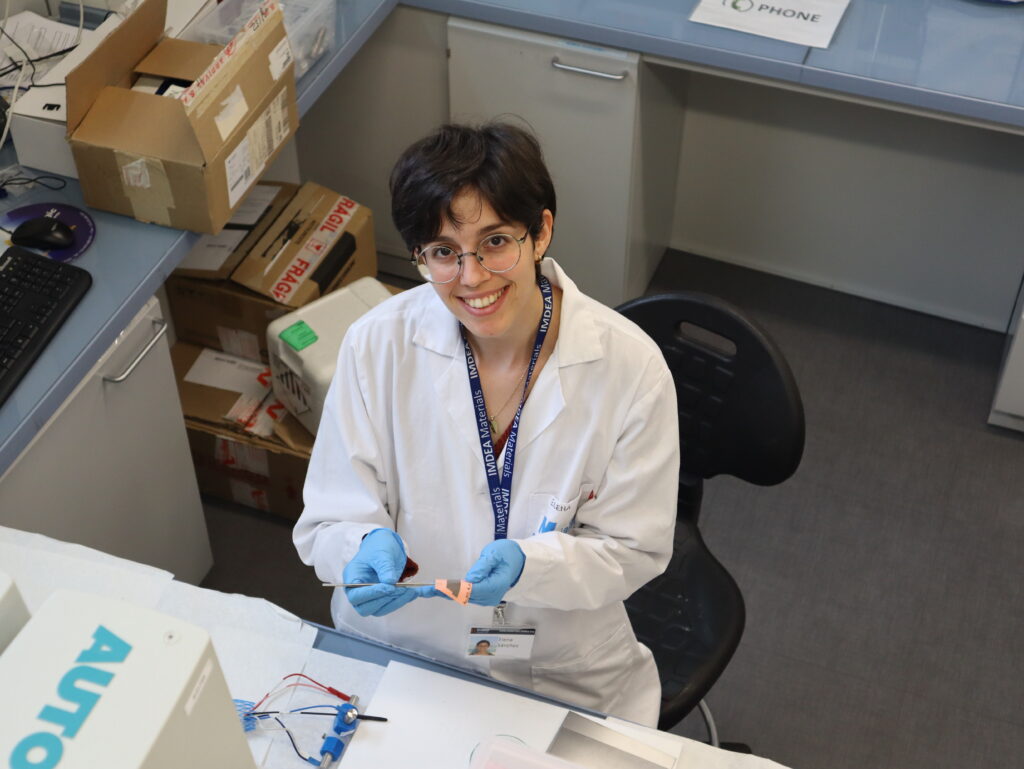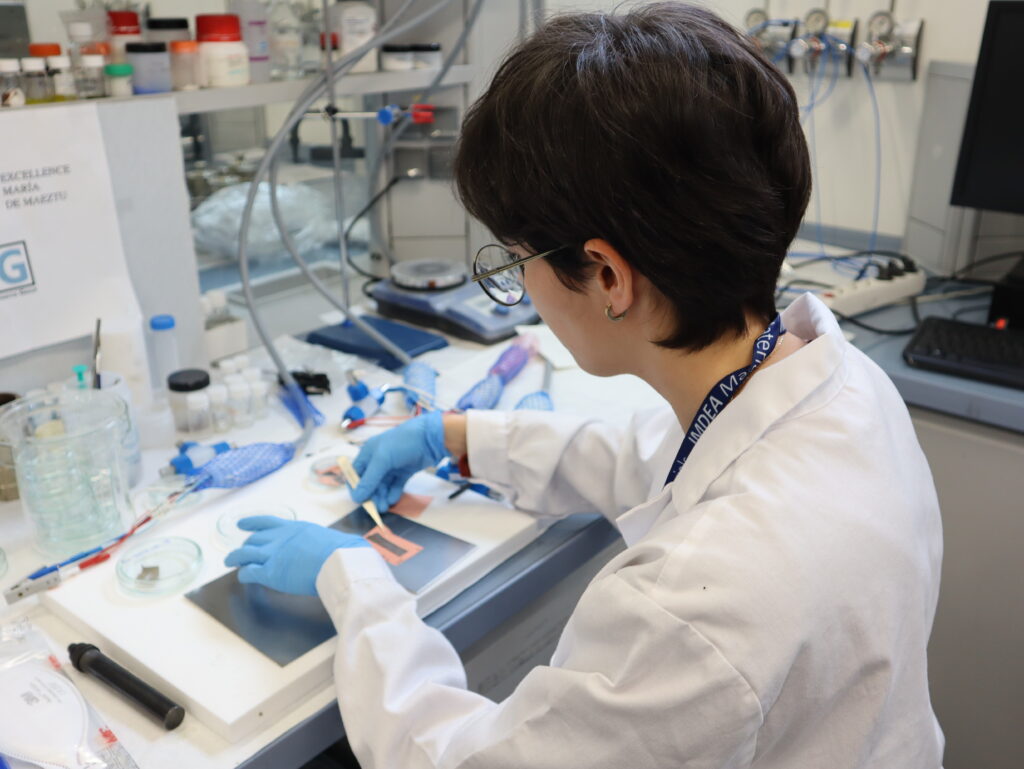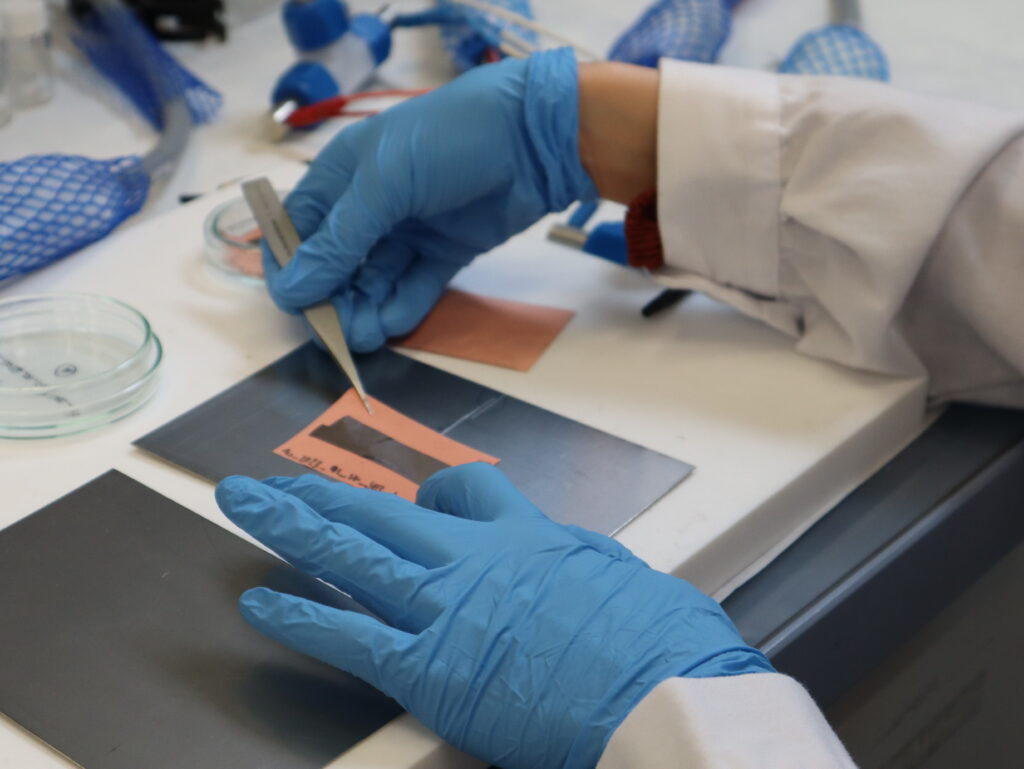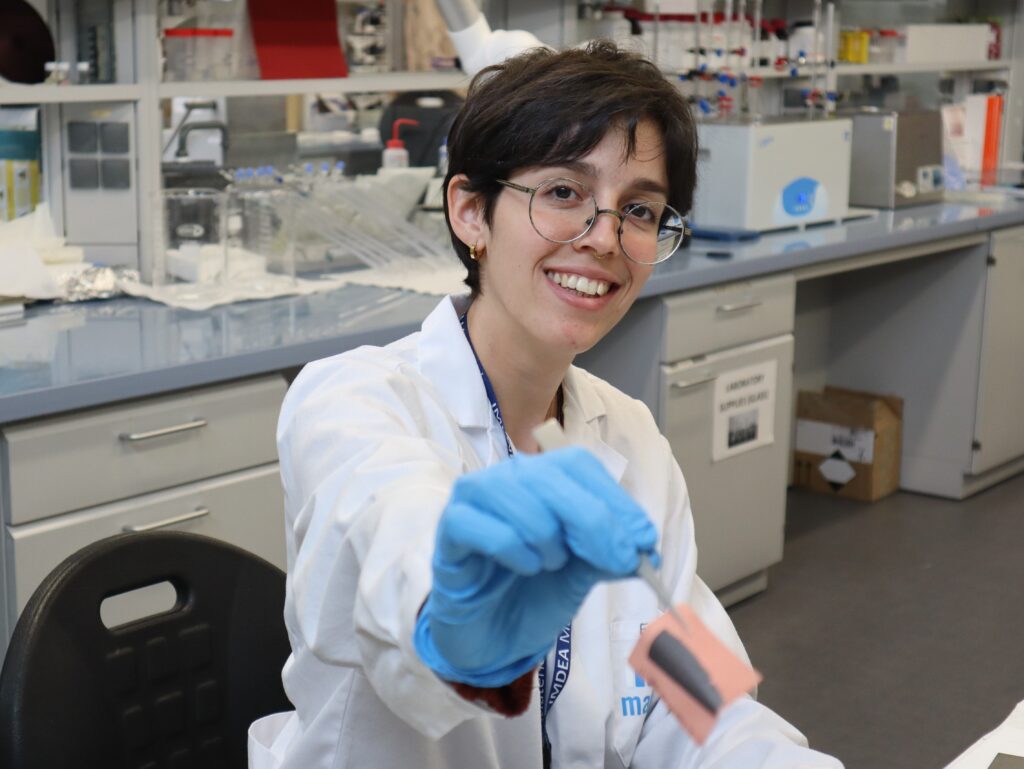This Saturday, February 11, is Women in Science Day. On this occasion, IMDEA Materials would like to showcase the work of three of our female researchers. In this first of three articles, we talk to predoctoral researcher Elena Sánchez.
In her day-to-day work as a predoctoral researcher at IMDEA Materials, Elena Sánchez works on the development of next-generation lithium-ion batteries.
Such batteries are seen as a fundamental building block in the decarbonization of the transport and energy sectors, and in the creation of a more sustainable world.
But aside from this important work, Sánchez also devotes her time to a cause that is perhaps just as significant in influencing society.
Outside IMDEA Materials, the 28-year-old researcher is the president of the Madrid UCM Student Chapter, a group of university students and alumni dedicated to popularizing science among the general public.
To this end, the association organizes conferences dedicated to communication for researchers, as well as workshops and talks on different topics.
In addition, every year, the association organizes Brain Wars: the future is in your hands. They invite students in their final year of undergraduate, master’s or doctoral studies, or even researchers who have already defended their thesis in the previous 12 months, to present a research paper in an informative way before a qualified jury.
All this with the aim of both encouraging research and the dissemination of knowledge among young researchers, as well as promoting interest in science and technology among the general public.
“I think it’s important to promote science in this way, so that people don’t fall into traps,” explains Sánchez. “Things as simple as the earth is flat, or everything that was said during the pandemic relating to masks, or that COVID-19 is spread by 5G, to give some examples.”
“That’s why I think science has to come to be considered popular culture. With a little bit of scientific knowledge about certain topics, a lot of people could avoid those kinds of scams.”
The Student Chapter’s science communication workshops have even featured notables in the field such as Dr. Manuel Seara Valero, biologist and presenter of A hombros de gigantes on RTVE.
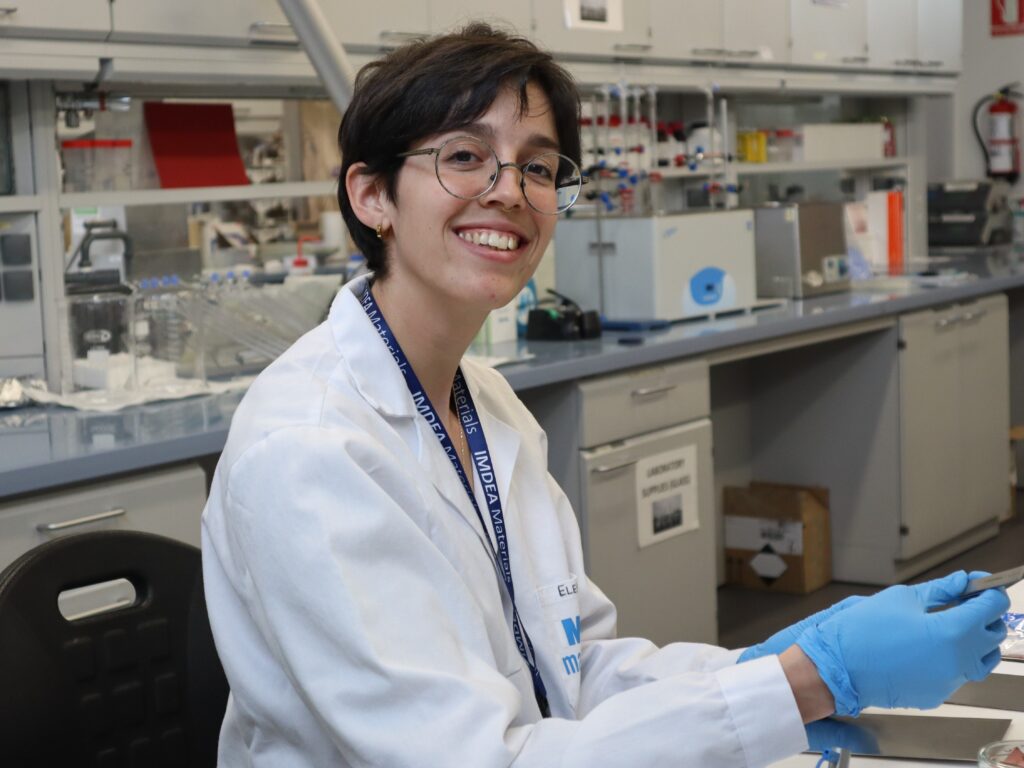
And Sánchez pointed to communicators such as scientist and Instagram influencer, Tamara Pazos, and the YouTube channel Ciencia con Carmen, as examples of how to communicate science in an attractive way to the new generations.
“I think that scientists in general, we find it difficult to transmit science in a way that reaches society while other disciplines have managed to do so,” says Sánchez.
“I feel that, in my own home, for example, I have a hard time telling my parents, who don’t have that same knowledge of electrochemistry as I do, what I do in a simple way.”
What Sanchez is doing right now is working on the development of solid-state lithium-ion batteries, more specifically, studying and applying how silicon nanowires can be integrated for the anodes.
She develops this activity within Dr. Juan José Vilatela’s Multifunctional Nanocomposites research group.
Silicon has a much higher storage capacity than graphite, which is currently one of the most widely used materials as a negative electrode in lithium-ion batteries for cell phones, cars, etc.
However, it has a major drawback that graphite does not. Silicon anodes experience volumetric expansion or swelling during the battery charging and discharging processes.
“Silicon has a high energy capacity, but, it has its problems,” says Sánchez. “Mainly, volumetric expansion that can generate fractures during battery use, and, therefore, cause the battery to stop working.”
“This is the main impediment to the commercialization of this type of battery. However, by using silicon in the form of nanowires and a solid electrolyte, rather than a liquid one, we can solve these problems or minimize them.”
The development of this technology could lead to safer, faster charging and higher capacity batteries in the future.
